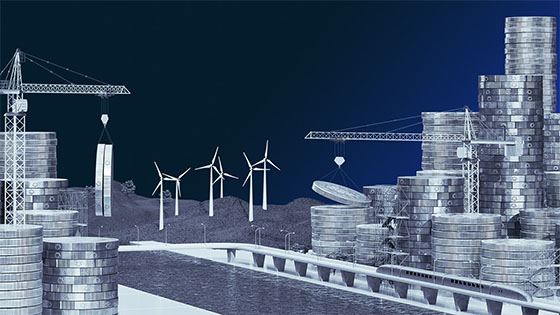
| ESSENTIALS FOR LEADERS AND THOSE THEY LEAD
|
| Click to get this newsletter weekly |
|
| Maybe you didn’t receive an invitation to attend the World Economic Forum’s annual Davos meeting this year. Lucky for you, the WEF also put together a virtual Davos Agenda leadership docket. Topics include the COVID-19 pandemic and economic recovery, the energy transition, vaccine equity and a renewed social contract, supply chain disruptions, the Fourth Industrial Revolution, and even outer space. This week, let us help you sort out the ones that are most likely to be top of mind as the year unfolds. |
|
| What does the state of the global economy over the past 20 years tell us? A recent McKinsey Global Institute report applies the concept of the corporate balance sheet to the global economy. The findings reveal that net worth across countries and households has tripled since 2000—now reaching more than $500 trillion—but varies widely by economy and within economies. Shifting sources of wealth are weakening the link between growing net worth and GDP: for every new dollar of investment, the financial system has created $4 in liabilities, and more investment is going into real estate than into infrastructure, intangible assets, and other drivers of economic growth. The key questions for leaders: How can global wealth and investment be used more productively and sustainably? What level of risk have we created with our assets, and how can we support it? Public- and private-sector decision makers will need to work together to address these complex issues, and both will play a key role in rebalancing the global economy. |
|
| That’s the annual average spending on physical assets—such as energy, mobility, buildings, agriculture, and land use—needed to achieve net-zero emissions by 2050, according to a new report from McKinsey. Spending over the next decade will prove decisive in how the energy transition and the global economic transformation required to achieve climate change goals will affect reductions in physical climate risks and other outcomes. Check out this series of articles to explore the seven key energy and land-use systems, how different sectors and geographies may be affected by the net-zero transition, and actions stakeholders can take to secure a more orderly transition. |
|
| That’s Robbie Schingler, cofounder of Planet Labs. There are more than 4,500 active satellites flying around in space, a number that is projected to grow exponentially in the coming years. In this interview, Schingler describes the satellite-data company as an agent for “democratizing access to information,” utilizing its more than 1,500 satellite images of Earth to transform the way people work across industries, ranging from agriculture to academia. Data from space can also help leaders take preventive measures against global risks. “Satellites that take the pulse of the planet will be used for applications that help people on Earth make sense of things,” Schingler says, “so that we’re not surprised, we understand risk, and we get closer to a true-cost global economy.” |
|
|
The Great Resignation has posed a challenge for leaders in recent months, leaving some wondering what steps to take in response, but research provides some clarity, pointing to the changes employees desire, including professional-development opportunities like upskilling and training. In this episode of the McKinsey Talks Operations podcast, panelists from manufacturing organizations discuss the impact of technology and the Fourth Industrial Revolution on the sector and how they’re keeping their workforces engaged for the digital future by remaining people-centered. McKinsey research shows that revitalizing the US manufacturing industry could not only help address ongoing supply chain issues in response to the pandemic but also expand inclusive employment in some areas. |
|
|
| THE TIMES THEY ARE A-CHANGIN’ |
|
|
|
|
|
As the world transforms drastically in the face of digital and technological revolutions, emergence from a pandemic, and shifting societal and stakeholder expectations, complex issues can be successfully addressed only through global collaboration. The Davos Agenda, of course, is about big ideas. And more than that, it’s about dialogue among experts. In this podcast from the McKinsey Global Institute, leading economists Dame Minouche Shafik and Andrew Sheng take up perhaps one of the biggest subjects on any leader’s agenda: the global social contract. What’s the contract today between the individual, the social-media giants, and the state, and how has it changed over time? Who rules, and who bears the highest-risk burdens? And what is the connection between sustainability and intergenerational equity? Put aside thoughts of alpine skiing and listen in—you might just imagine yourself in a Davos salon.
|
|
|
|
|
| — Edited by Dana Sand, an editorial production manager in McKinsey’s Cleveland office |
|
| Click to get this newsletter weekly |
|
|
|
|
|
Copyright © 2022 | McKinsey & Company, 3 World Trade Center, 175 Greenwich Street, New York, NY 10007
|
|
|
|